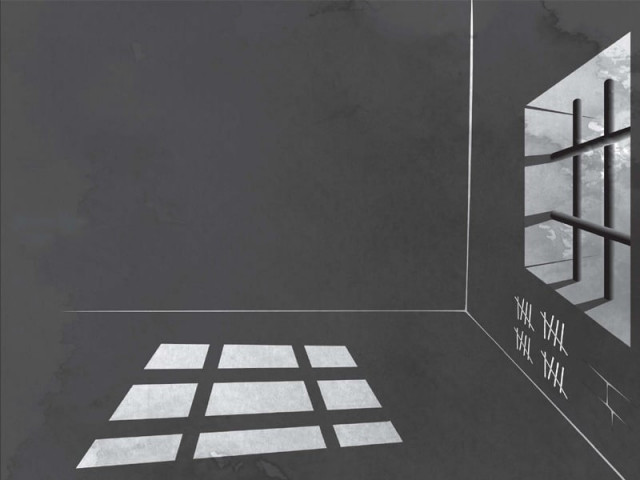Lawyers fight for Pakistanis in Afghan 'Guantanamo'
Suspects are held at Bagram time without charge, with no access to outside legal counsel, in inhumane conditions.

Khan was 14 at the time. His relatives have no idea how he ended up in the US-run detention centre near Bagram airbase, why he is being held, or when they can see him again.
"When we eat, drink or do anything, we remember him. If he had died, perhaps we would forget, but when somebody goes missing, you can't forget him," said Hameedullah's father, Wakeel Khan.
"His mother has hardly eaten anything for the past three years and she now also suffers from diabetes. His grandmother died from the grief."
Human rights activists say the Bagram jail is the "forgotten Guantanamo Bay", evoking the US naval facility in Cuba that became the holding pen for "war on terror" detainees after the September 11 attacks 10 years ago.
Suspected terrorists are held at Bagram for indefinite periods of time without charge, and with no access to outside legal counsel, in conditions that activists say are inhumane.
But the US military defends the Afghan jail as essential for sequestering hardened militants, and says secret military tribunals called "Detainee Review Boards" provide adequate legal recourse for inmates.
"It is a matter of security and military necessity and has long been recognised as legitimate under international law," said US military media officer Rick Chernitzer.
Hameedullah's family say he was last seen waiting at a bus stop in the restive South Waziristan, preparing to travel back to his home in Karachi.
They say they only learnt his whereabouts by contacting human rights activists who put them in touch with the International Committee of the Red Cross (ICRC), which has access to visit the jail's prisoners.
Lawyers for the family claim the boy, who is now 17, is one of several males who may have been handed over by Pakistani authorities to US forces across the border, and are petitioning for his release in the Lahore High Court.
So far the Pakistani government has not responded to requests from the court to explain its role, but Chernitzer denied any inmates were captured on foreign soil.
"No one at the (jail) was brought here from another country; all detainees are those captured within Afghanistan," he said.
The detention facility was first built within the sprawling US military base at Bagram, north of the Afghan capital Kabul.
Bagram prison gained a reputation for extra-judicial brutality in December 2002, when two inmates died within a week of each other.
They were officially said to have died of natural causes but a US inquiry later revealed they had been beaten, chained and deprived of sleep.
In late 2009 the jail was moved about a mile (1.6 kilometres) away and renamed the Parwan Detention Center. US forces said conditions had improved vastly and Afghans were now helping to run the jail and being trained to eventually take it over.
Lawyers say despite the switch to the purpose-built facility at Parwan, the rules and conditions continue to abuse human rights.
"Frankly the human rights abuses that are taking place in Bagram and the sheer number of prisoners that are there is equivalent to what Guantanamo was in the beginning," said Sarah Belal, of Justice Project Pakistan, who is the leading lawyer in the case against Islamabad.
"We want to highlight the role of the Pakistani government in either their rendition and complicity in sending them over to Bagram or, at the very least, the information-sharing with the US authorities," she said.
A total of 779 inmates have passed through the Guantanamo prison. More than 170 remain, despite a promise by US President Barack Obama to shut down the facility within a year of taking office in January 2009.
Parwan now holds more than 2,500 inmates, according to US media reports. Hameedullah is not the only Pakistani to end up there. Lawyers have documented at least six others, while the ICRC says 18 Pakistanis are held in Bagram.
Amal Khan, then 28, disappeared in northwest Pakistan in July 2002 after telling his family he was off to find work. Via the ICRC, the family traced him to the prison the next year and were able to speak to him by telephone.
But Khan is not allowed to tell them how he become a Bagram prisoner, relatives say. Any time he has tried to discuss his case with the family, or the treatment he has received, the phone line has been cut.
Even if the legal challenge in Lahore is successful, experts doubt that Hameedullah, Khan and others will be released any time soon.
"There's no compulsion for the United States to release them," said Imtiaz Gul, head of the Center for Research and Security Studies in Islamabad, doubting that people said to be hardened extremists "would ever be released".



















COMMENTS
Comments are moderated and generally will be posted if they are on-topic and not abusive.
For more information, please see our Comments FAQ